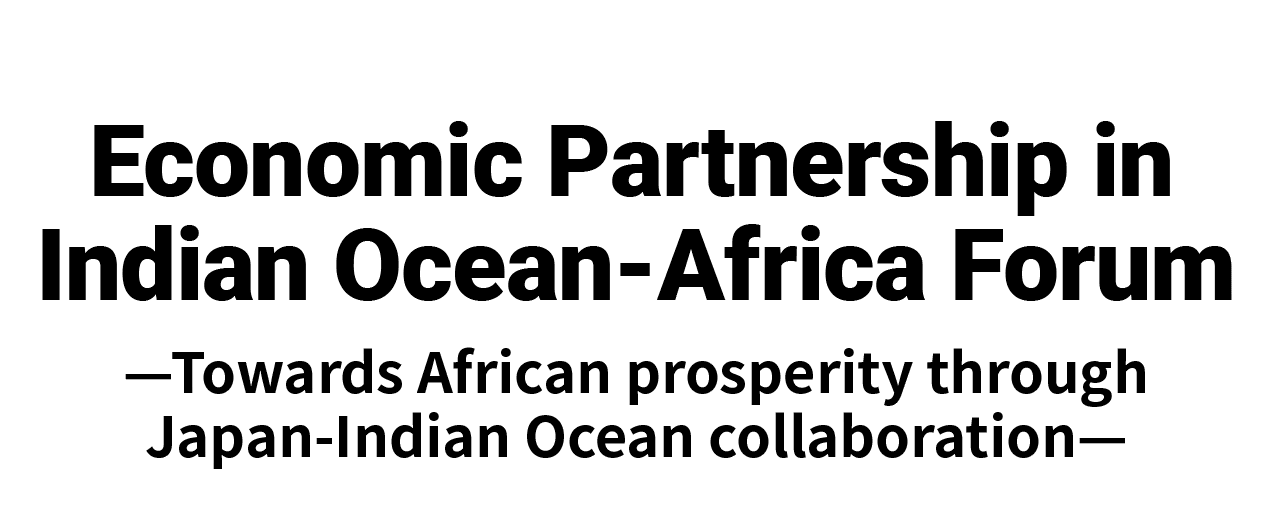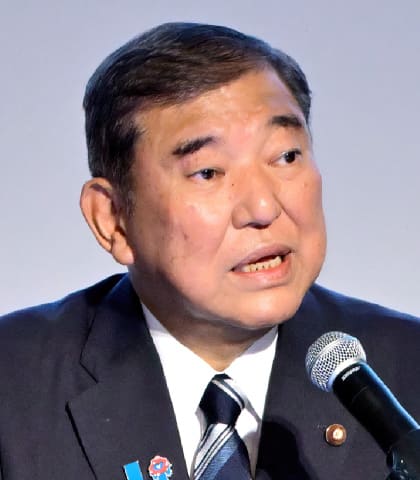
Shigeru Ishiba
Building a Free and Fair Economic Zone
Shigeru Ishiba
Prime Minister, Japan
In the very distant past, the land masses of India and Africa lay geographically side by side, forming a part of the Pangaea supercontinent, memories of which remain etched in the Earth’s strata. In the Middle Ages, merchants crossed the seas carrying textiles, spices, and handicrafts, riding the monsoon winds of the Indian Ocean to engage in vibrant trade. Today, once again, the Indian Ocean-Africa region is emerging as a center of growing economic importance due to its youthful populations, abundant energy resources, and rapid economic growth. With better connectivity within the region and more vigorous trade and investment, even greater growth is possible. To help achieve this growth, Japan wishes to work together with the people of this region and embrace the vitality and dynamism of Africa.
In this spirit, to mark the occasion of TICAD 9, I would like to propose the Economic Region Initiative of Indian Ocean-Africa. In alignment with our Free and Open Indo-Pacific (FOIP) vision, this initiative will aim at strengthening inter-regional connectivity and establishing a free and fair economic zone in the Indian Ocean-Africa region.
Africa is currently pursuing a grand project aimed at creating a free trade zone across the entire continent. To support this initiative, industry, academia, and government representatives from Africa and Japan will discuss ways to strengthen the wide-ranging economic ties that exist between the two sides. Such measures will accelerate Africa-led regional integration through offer-based cooperation by Japan on projects like the Nacala Corridor, as well as strengthen connectivity between Indian Ocean countries and Africa.
We would also like to promote regional industrial development and job creation based on co-creation and cooperation, and partner more closely with Indian Ocean countries. As part of this effort, we will support collaboration with companies from Indian Ocean countries under the Japan Africa Co-creation for Industry (JACCI) initiative to foster cooperation between African startups and Japanese companies. At the same time, we will encourage Japanese companies to join forces with companies in the Indo-Pacific region and Africa; contribution of capital by Japan International Cooperation Agency (JICA) to Indian funds that invest in African companies is one such example. I feel quite sure that the further development of an Indian Ocean-Africa economic zone can make a very significant contribution to Africa’s development.
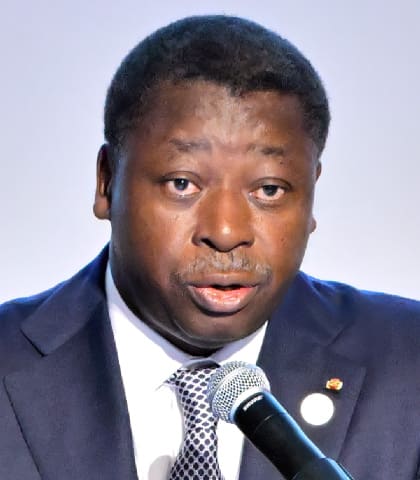
Faure Essozimna Gnassingbé
Four Important Ideas to Share
Faure Essozimna Gnassingbé
President of the Council, Republic of Togo
In this era of global uncertainty, Africa, Japan, and the Indian Ocean region all find themselves at the heart of dramatic change. To turn this into an opportunity and build a shared space of stability and prosperity, there are four important ideas I want to share. First, as a strategic logistics hub in West Africa, Togo enables Japan to directly connect its industrial products with African markets. Second, we should move beyond exports of raw materials and finished goods to co-create industrial value chains between Japan and Africa. Third, we need to establish secure shipping routes and economic sovereignty using the Indian Ocean as a key node. And fourth, we should pursue sustainable cooperation that prioritizes social inclusion and environmental consciousness. We want to realize these goals to transform this region into a driving force for growth, sovereignty, and sustainability.
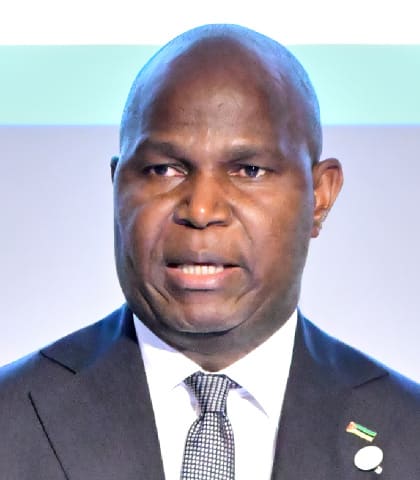
Daniel Francisco Chapo
Balancing Economic Prosperity and Environmental Conservation
Daniel Francisco Chapo
President, Republic of Mozambique
Given that Mozambique has approximately 2,700 km of Indian Ocean coastline, the Economic Region Initiative of Indian Ocean-Africa can play an important role in materializing the country’s national development agenda, particularly the implementation of the UN’s Sustainable Development Goals (SDGs). For the government of Mozambique, forging partnerships with other Indian Ocean coastal nations is vitally important for addressing global challenges such as climate change, debt, financial and trade restrictions, and barriers to technology transfer. In accordance with our National Development Strategy 2025-2044, we are trying to deepen cooperation in economic integration, promoting peace, the blue economy, maritime infrastructure, sustainable tourism, and energy transition. We are also actively pursuing investment opportunities in railways, ports, and maritime transport, as well as technology cooperation and knowledge exchange. In our view, the blue economy can serve as a means of facilitating both economic prosperity and environmental conservation.
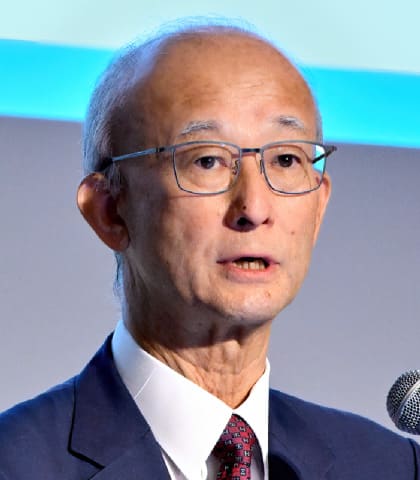
Jun Karube
The Benefits of the Indian Route
Jun Karube
Chairperson, The Japan-Egypt Business Council
Senior Executive Advisor, Toyota Tsusho
With their growing and youthful populations and digital adaptability, India and Africa have the potential to become major driving forces of the global economy. For Japanese companies looking to gain a foothold in Africa, there are two routes. One is via Egypt, the other via India. The model of establishing production and management bases in India, which makes it possible to leverage the strengths of Indian management, is especially effective in terms of cost competitiveness and speed. India is both geographically and culturally close to Africa. Collaboration between Japan and India is becoming stronger. There is also a lot of room for India and Africa to make use of Japan’s technology and expertise in power and transport infrastructure, agriculture, healthcare, education, startups, fintech, and other sectors. Ideally, Japanese companies can bring together India’s dynamism and Africa’s growth potential to build mutually beneficial relationships through trilateral cooperation.
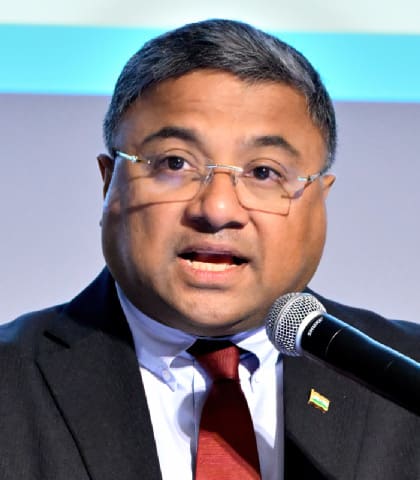
Sibi George
A Bridge to Link Japan and Africa
Sibi George
Ambassador of India to Japan
India and Japan enjoy a special relationship, rooted in shared values of democracy, freedom and rule of law. Our Special Strategic and Global Partnership has deepened to include nearly every area of human endeavor. This partnership is increasingly important for regional peace, stability and prosperity. India’s relationship with Africa is equally special. India’s approach is covered in the acronym MAHASAGAR (great ocean) which stands for mutual and holistic advancement for security and growth across regions. India’s longstanding engagement with Africa creates a natural bridge across the Indian Ocean. By bringing together Japanese technology, Indian manufacturing strength and Africa’s market potential, we can develop value chains that are resilient, reliable and closely aligned with the needs of our economies.
